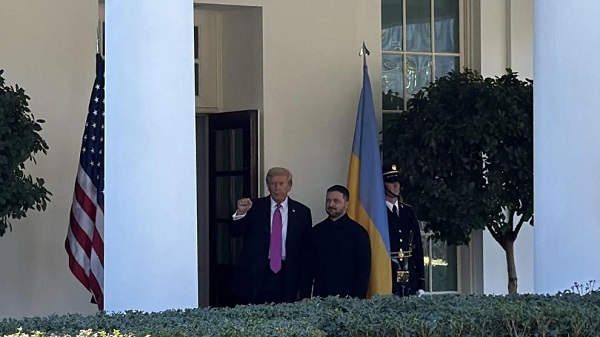Business
Pornhub hit with lawsuit over videos victimizing 12-year-old who was drugged and raped

From LifeSiteNews
There is a backlog of about five months between when a user reports a video and an authorized team leader reviews it to determine whether to remove it, allowing the video to remain available on the Pornhub site for download and redistribution for nearly a half year after the complaint was first reviewed.
A man who as a 12-year-old boy was drugged and raped in nearly two dozen videos that were uploaded to Pornhub by his victimizer for monetary gain is suing the massive online pornography leviathan for breaking child sex trafficking and RICO laws.
According to the world’s leading anti-porn activist Laila Mickelwait, “His jury trial could put Pornhub out of business.”
In recent years, scandal-plagued Pornhub — and its shadowy parent company, Mindgeek, which recently changed its name to “Aylo” to escape its “scandal-ridden smut empire” reputation — has come under fire for posting child sexual exploitation material, sexual trafficking, and assault videos and then ignoring victim’s pleas to remove the videos from their website.
The predator who admitted that in the summer of 2018 he used, induced, and enticed the young boy and another minor to engage in sexually explicit conduct for the purpose of producing video pornography is now behind bars serving a 40-year sentence for “sexual exploitation of a child, advertising child pornography, and distribution of child pornography.”
However, Mindgeek and Pornhub have yet to face their young accuser for enabling the public distribution of the videos.
According to the lawsuit, videos of the boy’s molestation “astonishingly” generated nearly 200,000 video views, and as a result of Mindgeek’s actions and/or inactions, the now-young man “has suffered incomprehensible past and present physical, emotional, and mental trauma.”
“MindGeek knows that there is a demand for CSAM (Child Sexual Abuse Material) on their sites and they cater to this demand,” according to the 78-page legal complaint filed in a U.S. District Court in Alabama where the sexual exploitation of the minors took place.
Hundreds of thousands of ‘teen’ sex video titles available
The case asserts that Mindgeek has historically sought to maximize profit, aggressively promoting child porn via titles and video descriptions that would more easily direct Google users to the exploitative videos featured on Pornhub.
“Many of the tags, categories, and search suggestions that have been created or edited by MindGeek facilitate users seeking easy access to child pornography, child sex trafficking, or any other form of child sexual abuse material, including that depicting” the then-12-year-old victim, cited in the complaint as CV1, in order to protect his identity.
“One such tag MindGeek used to classify pornographic content on its websites was ‘Teen.’ The suggested terms include ‘abused teen,’ ‘crying teen,’ ‘extra small petite teen,’ and ‘Middle School Girls,’” the legal complaint explains.
“In 2018, the word ‘teen’ was the seventh most searched term on all of Pornhub,” the complaint notes. “Other eponymous search terms, including ‘rape,’ ‘preteen,’ ‘pedophilia,’ ‘underage rape,’ and ‘extra small teens’ would call up videos depicting the same.”
The proliferation of these keywords and tags on the website ensures that when outside users Google these terms, Pornhub, or another MindGeek website, will be among the top results. This draws new users, even those searching the internet for illegal content, to MindGeek websites.
MindGeek’s aggressive data collection and traffic analytics mean that MindGeek knows exactly what users are looking for (and what exists) on their sites and that this includes sex trafficking material and CSAM.
For example, as The New York Times recently reported, as of December 4, 2020, a search for “girl under18” led to more than 100,000 videos. And a search for “14yo” led to more than 100,000 videos and “13yo” led to approximately 155,000 videos. MindGeek sought to capitalize on such traffic by allowing illegal search terms, creating suggested search terms, keywords, and tags
Purposefully failing to censor criminal child/teen porn videos
The case notes that while Mindgeek-Pornhub does have online moderators who review complaints about videos on the site, the 10 moderators “have no prior training, medical or otherwise, to identify whether someone depicted in a pornographic video is a child” and are, by design, set up to fail at their task.
The ten individuals on the “moderation/formatting team” were each tasked by MindGeek to review approximately 800-900 pornographic videos per 8-hour shift, or about 100 videos per hour. According to Pornhub, there are approximately 18,000 videos uploaded daily, with an average length of approximately 11 minutes per video. Hence, each moderator is tasked with reviewing approximately 1,100 minutes of video each hour. This is an impossible task, and MindGeek knows that.
To compensate for and accomplish the impossible task, moderators/formatters fast-forward and skip through videos, often with the sound turned down. The problem is not resources: MindGeek’s annual revenues are at least $500 million, and it could certainly hire and train more true moderators.
One of the most disturbing assertions in the case is that “When minor victims of sex trafficking and their representatives have contacted MindGeek to remove videos of them from its websites, MindGeek has refused to do so.”
In some cases, MindGeek moderators/formatters even looked at video comments, deleted those noting a video constituted child pornography or otherwise should be removed from the system, and left the video up.
The MindGeek moderators/formatters are discouraged from removing illegal content for particularly profitable users. Generally, when an uploader has a history of highly viewed content, the employees are only permitted to send warning letters about illegal or inappropriate content.
There is a backlog of about five months between when a user reports a video and an authorized team leader reviews it to determine whether to remove it, allowing the video to remain available on the Pornhub site for download and redistribution for nearly a half year after the complaint was first reviewed.
The videos that the boy’s victimizer uploaded to Pornhub bore “disturbing titles that clearly suggested the child depicted was a minor, including but not limited to: ‘(Had sex with) my Step Nephew’; ‘Taking Teen Virginity’; ‘My sweet little nephew.’ The other 20 video titles are too crude and obscene for LifeSiteNews to cite.
Despite those titles and the content of the videos, Mindgeek “never informed the authorities about the identity of the child sexual predator, the fact he posed child sexual violence, or the fact that child sexual violence was being utilized on their platforms for profit to their mutual benefit.”
At no time did the MindGeek Defendants attempt to verify CV1’s identity or age, inquire about their status as minor children, victims of sex trafficking, or otherwise use their platform to root out the trafficking of their images. Instead, the MindGeek Defendants continued to disseminate these images around the world for profit even after law enforcement informed the MindGeek Defendants the images contained child pornography.
‘Pornhub would rather stop doing business than prevent kids from watching porn’
Pornhub has now ceased operations in 12 states that have begun to require age verification in order to enter the porn sites: Texas, Utah, Arkansas, Virginia, Montana, North Carolina, Mississippi, Kentucky, Indiana, Idaho, Kansas, and Nebraska.
“The world’s biggest porn site would rather stop doing business than prevent kids from watching,” conservative commentator and author Michael Knowles noted earlier this year. “Quite telling!”
“Pornhub has decided that age verification laws damage their business model to such an extent that it is better for them to simply block entire states rather than comply with (age verification laws),” LifeSiteNews columnist Jonathon Van Maren wrote in January.
Despite the legal troubles, Pornhub racked up a total of 5.49 billion visits globally in May, and with over 1.1 billion visits in the U.S. was ranked 10th nationally for online traffic. It’s not unusual for the website to reach over 10 billion total global monthly visits.
Business
US government buys stakes in two Canadian mining companies

From the Fraser Institute
Prime Minister Mark Carney recently visited the White House for meetings with President Donald Trump. In front of the cameras, the mood was congenial, with both men complimenting each other and promising future cooperation in several areas despite the looming threat of Trump tariffs.
But in the last two weeks, in an effort to secure U.S. access to key critical minerals, the Trump administration has purchased sizable stakes in in two Canadian mining companies—Trilogy Metals and Lithium Americas Corp (LAC). And these aggressive moves by Washington have created a dilemma for Ottawa.
Since news broke of the investments, the Carney government has been quiet, stating only it “welcomes foreign direct investment that benefits Canada’s economy. As part of this process, reviews of foreign investments in critical minerals will be conducted in the best interests of Canadians.”
In the case of LAC, lithium is included in Ottawa’s list of critical minerals that are “essential to Canada’s economic or national security.” And the Investment Canada Act (ICA) requires the government to scrutinize all foreign investments by state-owned investors on national security grounds. Indeed, the ICA specifically notes the potential impact of an investment on critical minerals and critical mineral supply chains.
But since the lithium will be mined and processed in Nevada and presumably utilized in the United States, the Trump administration’s investment will likely have little impact on Canada’s critical mineral supply chain. But here’s the problem. If the Carney government initiates a review, it may enrage Trump at a critical moment in the bilateral relationship, particularly as both governments prepare to renegotiate the Canada-U.S.-Mexico Agreement (CUSMA).
A second dilemma is whether the Carney government should apply the ICA’s “net benefits” test, which measures the investment’s impact on employment, innovation, productivity and economic activity in Canada. The investment must also comport with Canada’s industrial, economic and cultural policies.
Here, the Trump administration’s investment in LAC will likely fail the ICA test, since the main benefit to Canada is that Canadian investors in LAC have been substantially enriched by the U.S. government’s initiative (a week before the Trump administration announced the investment, LAC’s shares were trading at around US$3; two days after the announcement, the shares were trading at US$8.50). And despite any arguments to the contrary, the ICA has never viewed capital gains by Canadian investors as a benefit to Canada.
Similarly, the shares of Trilogy Minerals surged some 200 per cent after the Trump administration announced its investment to support Trilogy’s mineral exploration in Alaska. Again, Canadian shareholders benefited, yet according to the ICA’s current net benefits test, that’s irrelevant.
But in reality, inflows of foreign capital augment domestic savings, which, in turn, provide financing for domestic business investment in Canada. And the prospect of realizing capital gains from acquisitions made by foreign investors encourages startup Canadian companies.
So, what should the Carney government do?
In short, it should revise the ICA so that national security grounds are the sole basis for approving or rejecting investments by foreign governments in Canadian companies. This may still not sit well in Washington, but the prospect of retaliation by the Trump administration should not prevent Canada from applying its sovereign laws. However, the Carney government should eliminate the net benefits test, or at least recognize that foreign investments that enrich Canadian shareholders convey benefits to Canada.
These recent investments by the Trump administration may not be unique. There are hundreds of Canadian-owned mining companies operating in the U.S. and in other jurisdictions, and future investments in some of those companies by the U.S. or other foreign governments are quite possible. Going forward, Canada’s review process should be robust while recognizing all the benefits of foreign investment.
Business
Judges are Remaking Constitutional Law, Not Applying it – and Canadians’ Property Rights are Part of the Collateral Damage

By Peter Best
The worst thing that can happen to a property owner isn’t a flood or a leaky foundation. It’s learning that you don’t own your property – that an Aboriginal band does. This summer’s Cowichan Tribes v. Canada decision presented property owners in Richmond B.C. with exactly that horrible reality, awarding Aboriginal
title to numerous properties, private and governmental, situated within a large portion of Richmond’s Fraser River riverfront area, to Vancouver Island’s
Cowichan Tribes. For more than 150 years, these properties had been owned privately or by the government. The Cowichan Tribes had never permanently lived
there.
But B.C. Supreme Court Justice Barbara Young ruled that because the lands had never been formally surrendered by the Cowichans to the Crown by treaty, (there
were no land-surrender treaties for most of B.C.), the first Crown grants to the first settlers were in effect null and void and thus all subsequent transfers down
the chain of title to the present owners were defective and invalid.
The court ordered negotiations to “reconcile” Cowichan Aboriginal title with the interests of the current owners and governments. The estimated value of the
property and government infrastructure at stake is $100 billion.
This ruling, together with previous Supreme Court of Canada rulings in favour of the concept of Aboriginal title, vapourizes more than 150 years of legitimate
ownership and more broadly, threatens every land title in most of the rest of B.C. and in any other area in Canada not subject to a clear Aboriginal land surrender
treaty.
Behind this decision lies a revolution – one being waged not in the streets but in the courts.
In recent years Canadian judges, inspired and led by the Supreme Court of Canada, have become increasingly activist in favour of Aboriginal rights, in effect
unilaterally amending our constitutional order, without public or legislative input, to invent the “consult and accommodate” obligation, decree Aboriginal title and grant Canadian Aboriginal rights to American Indians. No consideration of the separation of powers doctrine or the national interest has ever been evidenced by
the Court in this regard.
Following the Supreme Court’s lead, Canadian judges have increasingly embraced the rhetoric of Aboriginal activism over restrained, neutral language, thus
sacrificing their need to appear to be impartial at all times.
In the Cowichan case the judge refused to use the constitutional and statutory term “Indian,” calling it harmful, thereby substituting her discretion for that of our
legislatures. She thanked Aboriginal witnesses with the word “Huychq’u”, which she omitted to translate for the benefit of others reading her decision. She didn’t
thank any Crown witnesses.
What seems like courtesy in in fact part of a larger pattern: judges in Aboriginal rights cases appearing to adopt the idiom, symbolism and worldview of the
Aboriginal litigant. From eagle staffs in the courtroom, to required participation in sweat lodge ceremonies, as in the Supreme Court-approved Restoule decision,
Canada’s justice system has drifted from impartial adjudication toward the appearance of ritualized, Aboriginal-cause solidarity.
The pivot began with the Supreme Court’s 1997 Delgamuukw v. British Columbia decision, which first accepted Aboriginal “oral tradition” hearsay evidence. Chief
Justice Lamer candidly asked in effect, “How can Aboriginals otherwise prove their case?” And with that question centuries of evidentiary safeguards intended
to ensure reliability vanished.
In Cowichan Justice Young acknowledged that oral tradition hearsay can be “subjective” and is often “not focused on establishing objective truth”, yet she
based much of her ruling on precisely such “evidence”.
The result: inherently unreliable hearsay elevated to gospel, speculation hardened into Aboriginal title, catastrophe caused to Richmond private and government property owners, the entire land titles systems of Canadian non-treaty areas undermined, and Crown sovereignty, the fount and source of all real property rights generally, further undermined.
Peter Best is a retired lawyer living in Sudbury, Ontario.
The original, full-length version of this article was recently published in C2C Journal.
-

 Red Deer2 days ago
Red Deer2 days agoYour last minute election prep: Common Sense Red Deer talks to the candidates
-

 City of Red Deer21 hours ago
City of Red Deer21 hours agoPlan Ahead: Voting May Take a Little Longer This Election Day
-

 Business2 days ago
Business2 days agoJudges are Remaking Constitutional Law, Not Applying it – and Canadians’ Property Rights are Part of the Collateral Damage
-

 Business2 days ago
Business2 days agoTrump Blocks UN’s Back Door Carbon Tax
-

 Media1 day ago
Media1 day agoCanada’s top Parliamentary reporters easily manipulated by the PMO’s “anonymous sources”
-

 Business2 days ago
Business2 days agoTrump Admin Blows Up UN ‘Global Green New Scam’ Tax Push, Forcing Pullback
-

 Daily Caller2 days ago
Daily Caller2 days agoTrump urges Putin, Zelenskyy to make a ‘deal’
-

 Uncategorized9 hours ago
Uncategorized9 hours agoNew report warns WHO health rules erode Canada’s democracy and Charter rights


